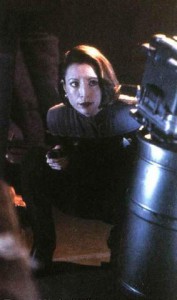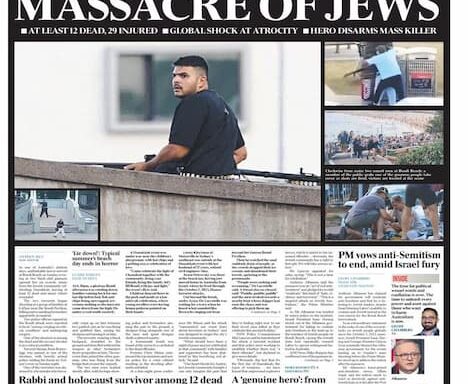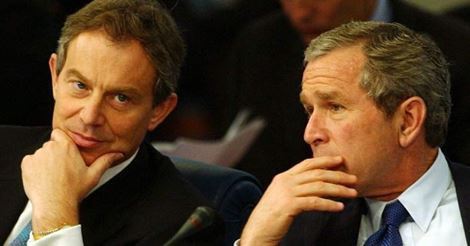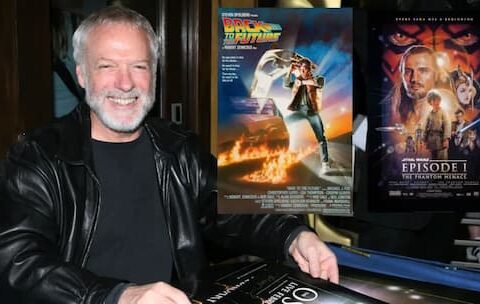The critical acclaim lavished on the Star Wars limited series Andor has been deserved.
By far, it has been the best of the various Disney+ Star Wars shows.
I’m a little behind on Season Two, having only watched three episodes so far. But, even just based on the first season, Andor is a level above the other offerings in the wildly inconsistent franchise.
The Obi-Wan Kenobi series is the one I’ve personally enjoyed the most: but Andor is definitely the most compelling and the best written and constructed.
What’s also interesting is seeing all the journalistic commentary on how relevant the show is to current affairs: commentators have (rightly or wrongly) cited everything from the growing spectre of fascism to the War in Gaza.
In particular, a speech from Senator Mon Mothma (Genevieve O’Reilly: originally cast in the role by George Lucas for Revenge of the Sith) in a recent episode has drawn a lot of attention.
The Guardian notes that the Senator’s speech calling ‘a genocide a genocide’ has strong resonance with what’s happening in Gaza – and particularly the tendency of mainstream commentary to sugarcoat the reality of it.
In further resonance with current events, the article further highlights the Empire’s discussions about ‘how to “weaponise” galactic opinion to manufacture public approval for ethnic cleansing on the planet Ghorman. News anchors parrot Imperial talking points, while the military plots a long game: to provoke an uprising from “rebels you can depend on to do the wrong thing” to justify a mass crackdown – all in service of a long-planned land and resources grab…‘
These discussions are actually in the first episode of the latest season. And they certainly bring to mind current events, again especially Israeli activity in Gaza: not just in terms of ethnic cleansing and land grabs, but propaganda, media management, and even the nurturing of one’s own enemy as a useful pawn to facilitate a geopolitical agenda.
In fact, most of Andor Season Two’s material was probably written some time before October 7th, so the parallels are probably coincidental.
But a show as well written as Andor is always liable to resonate with various real-world issues and situations.
And a series specifically about empire and Colonialism, oppression and rebellion, is even more likely to do that – because those things have never really gone away in the real world.
In the first season, Andor’s home world Ferrix – beautifully realised and brought to life by the production team – could easily be, for example, the West Bank and its community easily the Palestinians.
But it could also be somewhere in Occupation-era Iraq. Or some town in Syria in the last fifteen years. It makes you think of a lot of things. The Mujahedeen in Soviet-occupied Afghanistan being another example that came to mind for me in some instances. I’m sure parallels can just as easily be drawn, for example, to the Troubles in Northern Ireland.
Tony Gilroy and co are probably drawing more from historical precedents than contemporary world affairs: but still it’s hard not to make these kinds of connections.
George Lucas likewise was mostly drawing on historical inspiration for the Prequel Trilogy’s story of a corrupt and failing Republic and a rising tyranny – especially the events of first century Rome and the Civil Wars that ended with the rise of Augustus and the advent of Imperial Rome.
But he also spoke of the films reflecting contemporary politics at the time: specifically the Iraq War and the Bush administration’s post-9/11 agendas.
Star Wars at its best has reflected both historical and contemporary parallels. Lucas, as far back as the eighties, said the Original Trilogy’s Rebellion versus Empire paradigm was somewhat based on Vietnam.
Andor follows the same sort of pattern. Even in its first season it was exploring issues as interesting and as pertinent as excessive policing, mass incarceration, and the prison industrial complex.
It’s interesting to me that Disney would allow Lucasfilm to make a show like this: where, in effect, rebels and terrorists are ostensibly the good guys, or at least the protagonists.
And make no mistake, Cassian Andor is essentially a terrorist. He could just as well be a member of Hamas. Or the IRA.
And a lot of these characters are similarly morally grey. Stellan Skarsgard’s rebellion orchestrator Luthen Rael is arguably a ‘terrorist mastermind’, even possibly in the mold of an Osama Bin Laden archetype. Much of what he does is morally questionable.
Forrest Whittaker’s Saw Guerrera – sadly underused in the series – has been flatly described as an ‘extremist’.
This isn’t the black-and-white good versus evil paradigm of classic Star Wars. The ‘good guys’ are not glorious heroic characters, but dubious, grey figures struggling to do what’s necessary.
The bad guys are mostly not textbook evil either, but mostly dull bureaucrats simply focused on fulfilling their job descriptions.

The focus on the Empire’s dull bureaucrats is actually one of the most interesting things in the series, bringing to mind Hannah Arendt’s famous line about the ‘banality of evil’.
Arendt was specifically commenting on the trial of Adolf Eichmann in Israel: but, more generally, the reality Andor captures is of the hum-drum, everyday machinery of tyranny – not Sith Lords, supervillains or larger-than-life sorcerers, but normal, boring people, doing the normal boring jobs that keep the imperial machine running.
It’s closer to real life in that sense.
Perhaps uncomfortably so.
One of the few comparable mainstream franchise shows that featured ‘terrorists’ as protagonists and even heroes was Star Trek: Deep Space Nine thirty years ago – which is still one of my absolute favourite TV shows ever.
DS9 characters like Kira Nerys, Michael Eddington and, latterly, Legate Damar, were probably only able to exist in a major franchise show because it was pre-9/11. Had that series aired a year or two later, it’s unlikely it would’ve been approved.
DS9, often referred to as the ‘darker Star Trek’, is still not as dark or bleak as Andor is: but then it was still hampered by being a 90s show ahead of its time, its prime-time TV slot and PG-style in-house format.
But I can see strong similarities between Deep Space Nine and Andor: particularly in regard to their unique places within broader franchises.

Both shows feature some morally and ethically ambiguous characters (DS9‘s much loved Elim Garak is definitely comparable to Stellan Skarsgard’s Luthen in Andor), both shows heavily deal in geo-politics, political intrigues, often Machiavellian scheming, and challenging themes.
And both shows are considered as outliers, somewhat out of step with their more ‘family friendly’ oriented franchises.
An acclaimed DS9 episode like ‘In the Pale Moonlight’ – in which the series’ principal hero engages in deceit and manipulation in order to trick a geo-political power into entering a war under false pretenses – could very easily be an episode of Andor.
But I’ll stop talking about Deep Space Nine: I wrote a lengthy ode to that show here in the archive.
But, just like DS9 wasn’t the cosy, family-friendly Star Trek everyone was comfortable with, Andor hasn’t been the Star Wars a lot of fans are drawn to.
Which probably explains the reported disparity in the first season’s streaming numbers compared to other Star Wars shows. There was also a disparity between the show’s streaming numbers and its critical acclaim.
For a sizeable part of the franchise audience, the more cartoonish antics of The Mandalorian or the Boba Fett show are where it’s at.
Andor is more demanding: but also far more rewarding.
Given the almost universal praise for this series, it’s strange to think how unduly critical people were of The Phantom Menace for having too much ‘boring politics’ in it.
I guess a lot of people don’t really know what they want out of Star Wars. Which might actually inform why the franchise itself doesn’t seem sure what it wants to be anymore too.
But the success of Andor, and the palpable hype surrounding Season Two, might have a positive influence on future creative directions.
Then again, maybe Andor is just a one-off capturing of lighting in a bottle. If so, at least we got something as good as this.
Needless to say, I’m really looking forward to sinking my teeth into Season Two of Andor: and I’ve been carefully trying to avoid spoilers.
But I think it’s going to be a very long time before Star Wars is as compelling as this again.
See ALL Star Wars articles here.




